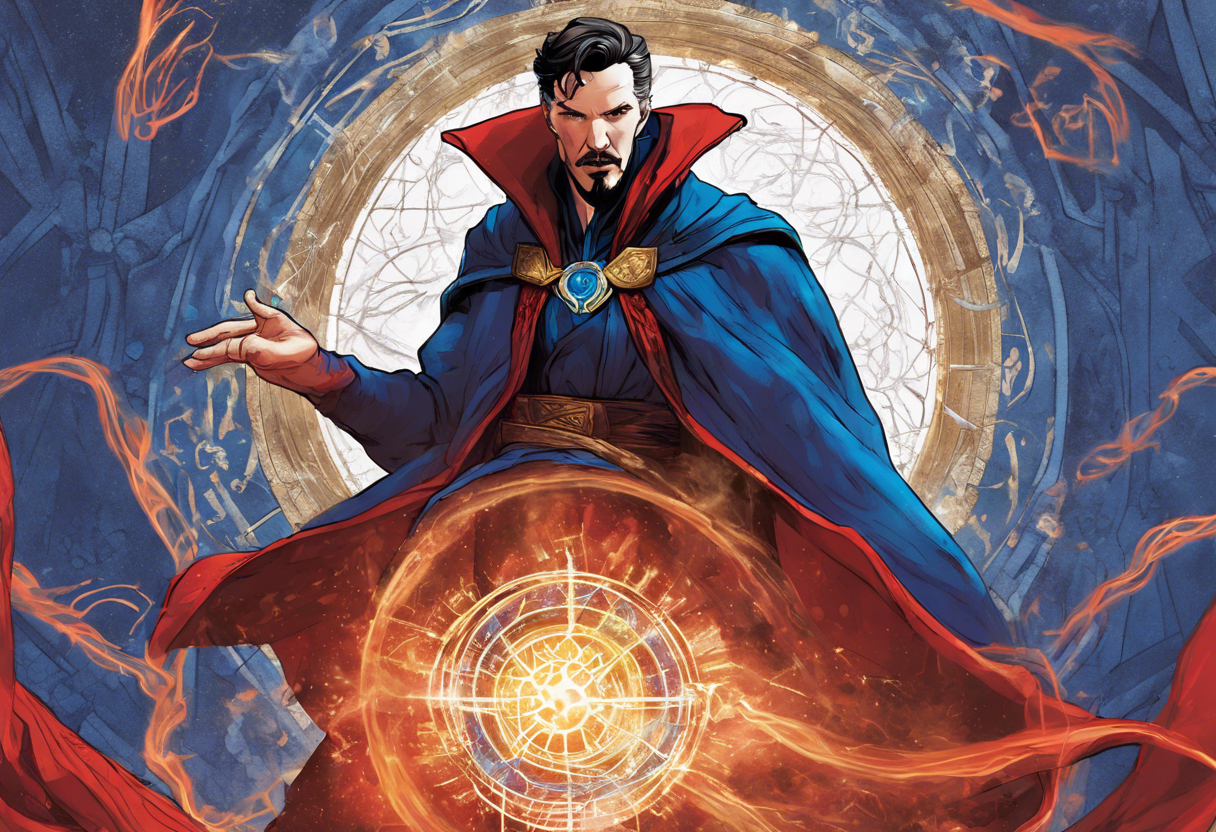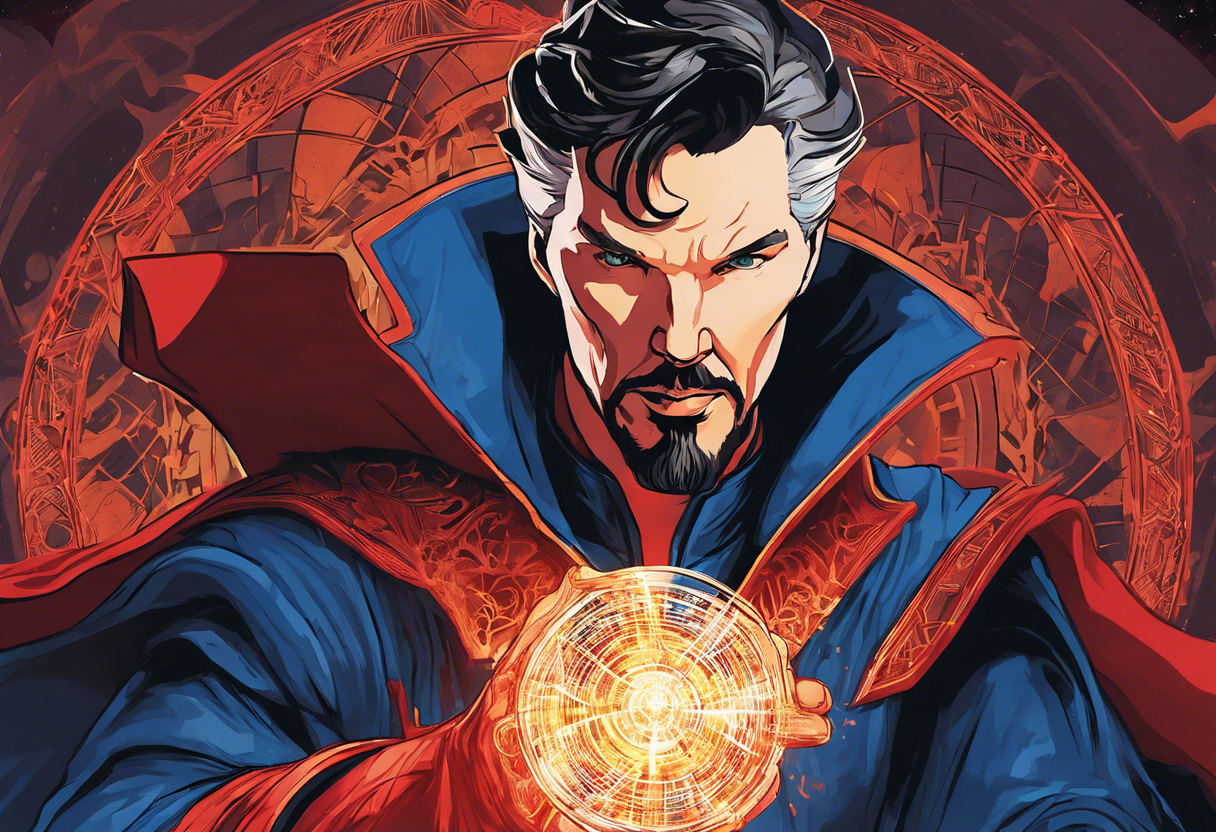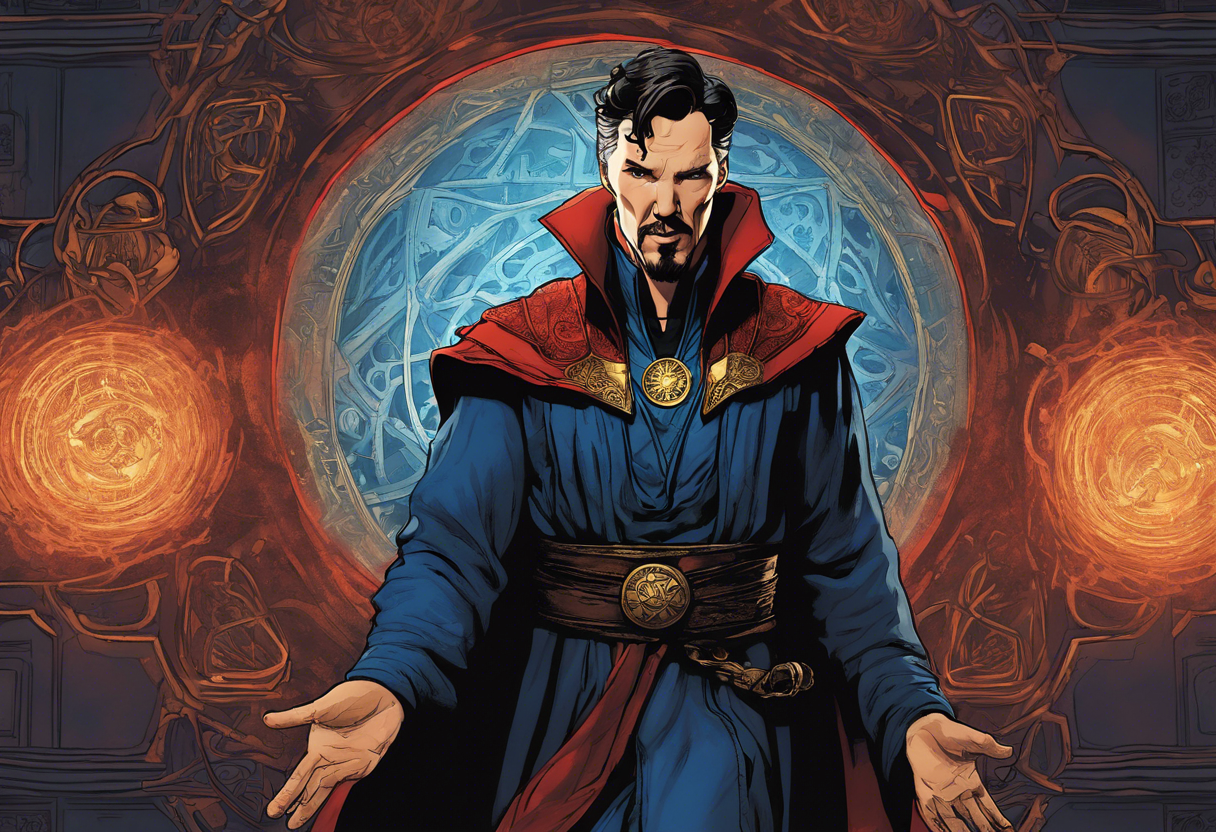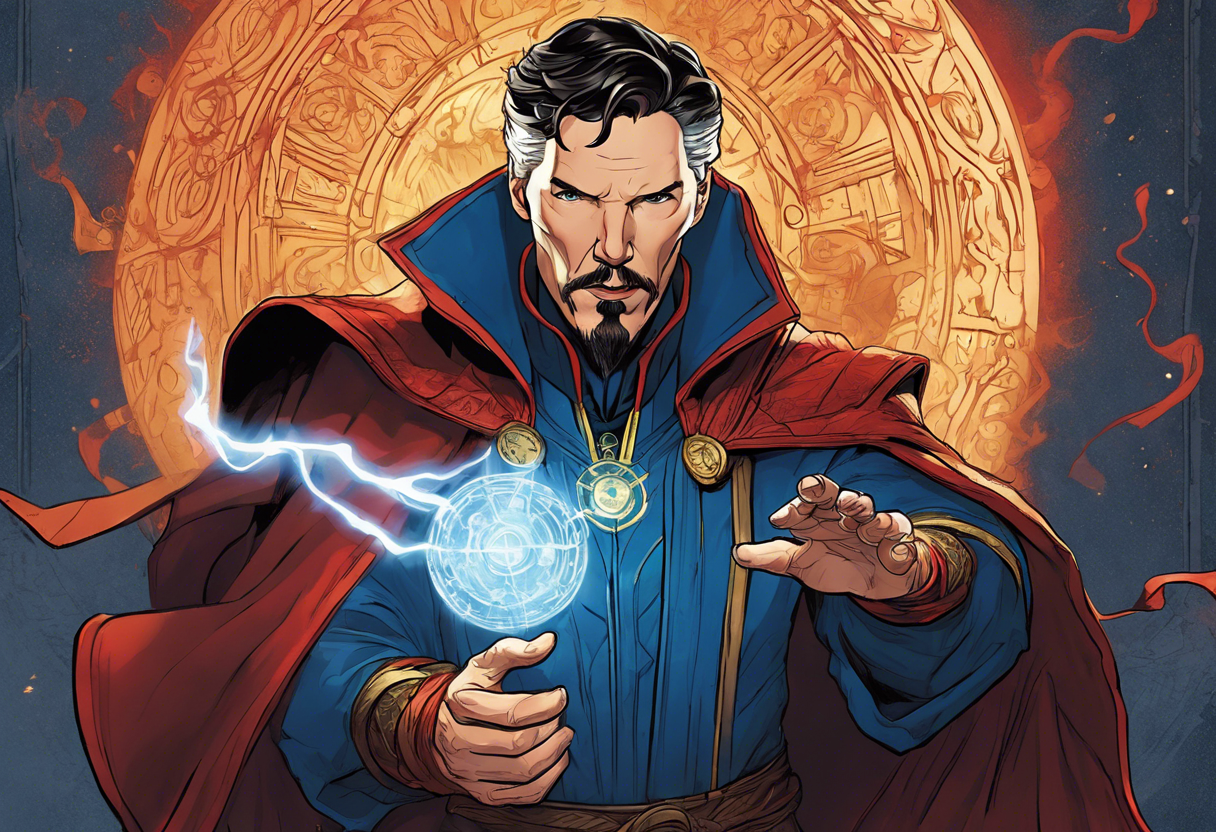Introduction
Doctor Strange, created by writer Stan Lee and artist Steve Ditko, is a pivotal character in the Marvel Comics universe, first appearing in Strange Tales #110 in July 1963[1][4]. Originally conceived as a unique character to introduce themes of mysticism, Doctor Strange has evolved into a cornerstone of Marvel’s narrative, particularly in the Marvel Cinematic Universe (MCU).
Doctor Strange, whose real name is Dr. Stephen Vincent Strange, is a brilliant but arrogant neurosurgeon. Born in Philadelphia and raised in New York City, Strange’s career as a surgeon was marked by his exceptional skill and ego. However, his life took a drastic turn after a car accident severely damaged his hands, rendering him unable to perform surgery. Desperate for a cure, Strange traveled the world, eventually finding the Ancient One, the Sorcerer Supreme, in the Himalayas. Under the Ancient One’s tutelage, Strange learned the mystic arts and became the new Sorcerer Supreme, defending the world against magical and mystical threats[1][4].
As the Sorcerer Supreme, Doctor Strange plays a crucial role in the Marvel universe, often at the forefront of battles against cosmic and mystical enemies. His significance extends beyond his magical abilities; he embodies a complex mix of arrogance, stubbornness, and a deep sense of responsibility, making him a compelling and relatable character.
Role in the Story
Doctor Strange’s journey begins with his transformation from a renowned neurosurgeon to a master of the mystic arts. After the car accident that destroyed his hands, Strange’s search for healing led him to the Ancient One. Despite initial reluctance due to Strange’s arrogance, the Ancient One saw potential in him and accepted him as a student. Strange quickly proved himself by thwarting the plans of Baron Mordo, the Ancient One’s treacherous disciple, and subsequently became the Ancient One’s most trusted apprentice[1].
Upon the Ancient One’s death, Strange returned to New York City and took residence in the Sanctum Sanctorum, where he continued to learn and master the mystic arts. He encountered various mystical foes, including Nightmare and Dormammu, the ruler of the Dark Dimension. His battle with Dormammu, where he used the Eye of Agamotto to create a time loop, showcased his strategic thinking and stubborn determination[1][2].
In the MCU, Doctor Strange’s role expands as he becomes a key member of the Avengers. He played a crucial part in Avengers: Infinity War, where he foresaw the inevitable defeat at the hands of Thanos and devised a contingency plan. His actions, though often driven by arrogance, are ultimately motivated by a deep sense of responsibility to protect the universe[2].
Character Analysis
Doctor Strange’s personality is a complex interplay of intelligence, arrogance, and stubbornness. His initial arrogance, which was both his greatest strength and weakness as a surgeon, continues to influence his actions as the Sorcerer Supreme. This trait often puts him at odds with other characters, but it also drives his unwavering determination to protect the universe[2][5].
Despite his flaws, Strange is deeply motivated by a sense of responsibility. He understands the weight of his powers and the consequences of his actions, which often leads him to make difficult decisions that may seem callous or uncaring to others. This burden of responsibility is a defining aspect of his character, making him a hero who is willing to sacrifice personal relationships and even his own life for the greater good[2].
Strange’s relationships with other characters are also significant. His friendship with Wong, his valet and fellow sorcerer, provides a stable and supportive dynamic. His complicated relationship with Christine Palmer, a fellow surgeon, highlights the personal costs of his career choices. Additionally, his rivalry with Baron Mordo and his encounters with other mystical entities shape his character and drive the plot forward[1][5].
Themes and Symbolism
Doctor Strange embodies several themes that are central to the Marvel narrative. One of the most prominent is the theme of redemption and personal growth. Strange’s transformation from an arrogant surgeon to a humble sorcerer is a journey of self-discovery and acceptance of his limitations. This arc symbolizes the idea that even the most flawed individuals can change and find a higher purpose[1][3].
The character also represents the theme of responsibility and the consequences of power. As the Sorcerer Supreme, Strange must navigate the complexities of wielding immense power and making decisions that affect the universe. This theme is symbolized through his use of the Eye of Agamotto and the Cloak of Levitation, powerful artifacts that underscore his role as a guardian of reality[1][2].
Furthermore, Doctor Strange delves into the concept of time and the multiverse. His use of the Eye of Agamotto to manipulate time and his encounters with alternate dimensions highlight the complexities and risks associated with altering reality. This theme is symbolic of the broader Marvel universe’s exploration of time, space, and the infinite possibilities of the multiverse[1][2].
Cultural Impact
Doctor Strange has had a significant cultural impact since his introduction in the 1960s. In the comic book series, he has been a staple character, known for his unique blend of mysticism and superheroism. The character’s transition to the MCU has further amplified his popularity, with Benedict Cumberbatch’s portrayal bringing new depth and nuance to the role[1][4].
The character’s influence extends beyond the Marvel universe. Doctor Strange has inspired numerous adaptations, including television films and animated series. His appearance in the MCU has also spawned various merchandise, from toys to clothing, cementing his status as a cultural icon[4].
Critical Reception
Doctor Strange has received widespread critical acclaim, particularly in the MCU. Benedict Cumberbatch’s performance has been praised for its complexity and depth, bringing a new layer of sophistication to the character. The film Doctor Strange (2016) was lauded for its visual effects, storytelling, and the introduction of magical elements to the MCU[2].
However, the character has also faced criticism for his arrogance and the moral ambiguities of his actions. Some critics argue that his willingness to sacrifice lives for the greater good raises ethical questions about the nature of heroism. Despite these criticisms, Doctor Strange remains one of the most compelling and complex characters in the Marvel universe[2][5].
Legacy
Doctor Strange’s enduring appeal lies in his complex character traits and the rich narrative he inhabits. As the Sorcerer Supreme, he represents a unique blend of science and mysticism, making him a fascinating figure in both comic book and cinematic universes.
His influence on other works is evident in the proliferation of magical and mystical themes in contemporary media. Characters like Doctor Strange have paved the way for more nuanced and complex superheroes, challenging traditional notions of heroism and power.
In conclusion, Doctor Strange is more than just a character; he is a symbol of redemption, responsibility, and the infinite possibilities of the multiverse. His legacy continues to inspire new generations of fans and creators, ensuring his place as one of the most iconic characters in the Marvel universe.
References
- https://en.wikipedia.org/wiki/Doctor_Strange
- https://screenrant.com/doctor-strange-character-traits-marvel-cinematic-universe-mcu/
- https://www.fatherkenny.com/en/blog/doctor-strange
- https://www.britannica.com/topic/Doctor-Strange-fictional-character
- https://www.charactour.com/hub/characters/view/Stephen-Strange.Doctor-Strange





